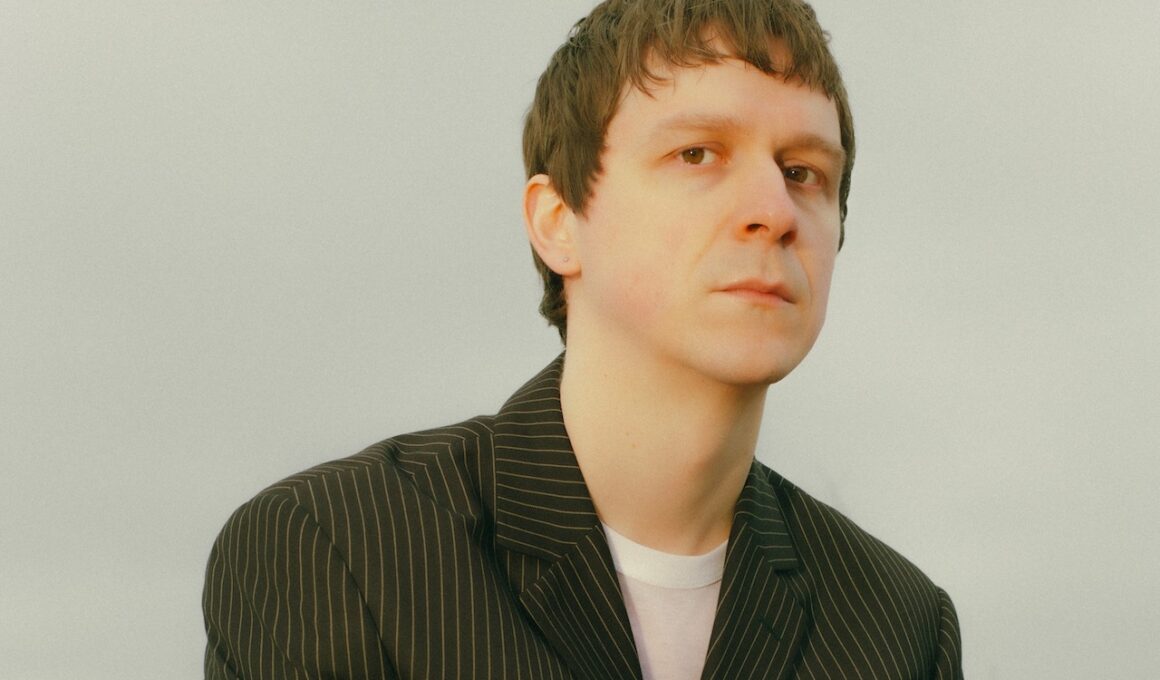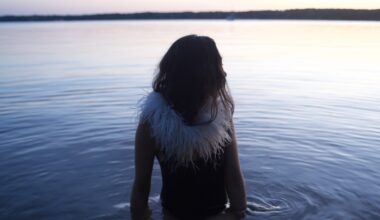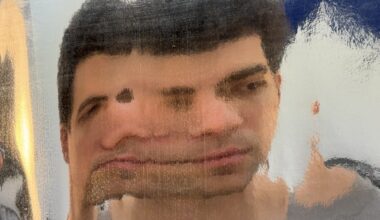On June 6th, Hydropsyche and Unguarded announced Exhumed & Forgiven, the first album from Hydropsyche on the label. This LP boasts 8 glacial and emotive melody-forward synthesizer compositions utilizing additive and polyrhythmic sequencing to create a contained but hypnotic sense of movement throughout. Hydropsyche has previously released the Scree EP on the Paris label High Heal in 2018, as well as self-releasing the Vestiges EP in 2019. He has contributed to numerous compilations, including the Unguarded compilation Entangled in 2021, and has performed at Lunchmeat Festival, Berliner Festspiele, Fotonica Festival in Rome, and opened the Prague Quadrennial in 2023.
FACTS
1. Beau Brummell was a late 18th century dandy, arguably the first influencer, and the inventor of the precursor to the modern day suit for men. He lived a lavish lifestyle that was copied by the upper class of London down to the last detail. It was said that he only ate meat. A princess once asked him if it’s true that he’d never eaten a vegetable, to which he answered, I once ate a pea.
2. Apples originate from Kazakhstan. You can go on guided tours of the wild apple groves around Almaty in the fall. I’m considering it.
3. The Chinese wheelbarrow, which was the most popular means of transportation of both people and goods well into the 20th century, differs significantly from its Western counterpart in its construction. The entire weight of the wheelbarrow and its load are balanced around a single central wheel, meaning that the operator doesn’t have to carry any of the weight, and only has to manoeuvre the wheelbarrow. It was popular to mount sails on them, and they could carry as many as 8-10 people.
1. What is the biggest inspiration for your music?
In terms of motivation and drive, it is the desire to create something beautiful, or perhaps to recreate a feeling of beauty, whether nostalgic, or occasionally therapeutic, in the sense that a painful or difficult memory or experience is transformed into a melancholic piece of music instead.
In terms of direct influence on how my music is made currently, I would say synthesizers and the people who play them; Alessandro Cortini, Caterina Barbieri and Lorenzo Senni. Folk music, black metal, Burial, Deftones, contemporary composers like Arvo Pärt and Max Richter. But the musicians I work with tend to have a more direct impact on how I think about music and writing.
2. How and when did you get into making music?
I started out playing drums as a little kid, and I joined a couple of metal and punk rock bands when I was 14-15, which was the first time I wrote any music myself. Then at university I got into producing dubstep. It seemed easy, but turned out to be a lot harder than I thought.
3. What are 5 of your favourite albums of all time?
The best I can do is pick some recent favourites:
King Woman – Celestial Blues
Yves Tumor – Praise A Lord Who Chews But Which Does Not Consume (Or Simply, Hot Between Worlds)
Čáry Života – Stinitko
I’ll pick a couple of Norwegian ones for good measure:
Arve Henriksen – Chiaroscuro
Jenny Hval – Apocalypse, girl
4. What do you associate with Berlin?
The most incredible people from all over the world — activists, artists, socialites, thinkers.
The massive poverty and the clever ways in which people circumvent it.
5. What’s your favourite place in your town?
There’s two old underground water cisterns in Prenzlauer Berg; the Kleiner and Grosser Wasserspeicher. Both are incredibly interesting as venues for concerts, performances and exhibitions, and have spectacular acoustics.
6. If there was no music in the world, what would you do instead?
The simple equation states that I’d be programming, since that’s what I work with a lot outside of music nowadays.
However, if there really never was any music in the first place, I hope I would be gardening or caring for animals. Or perhaps organising a renaissance fair.
7. What was the last record/music you bought or listen?
I’ve been hooked on sad Russian club music lately. Cream Soda, AIGEL, Luna, Monokini.
8. Who would you most like to collaborate with?
I’m fortunate to be performing with Petra Hermanova and Ilgen-Nur currently.
I’ve also got a long wishlist of Berlin artists to work with, including Kloxii, Sin Maldita, ronja, Agnese Menguzzato, Simone Antonioni.
9. What was your best gig (as performer or spectator)?
My show at Lunchmeat festival in 2019 is still a strong memory — I was really taken aback by the audience response that night.
10. How important is technology to your creative process?
It’s both a source of inspiration and a method. I’ve made it quite central to the process of making this project and this album, buying specific instruments and using techniques that are very well suited for the modular synth. But my background is as an instrumentalist, so I’m equally happy to make music on an acoustic instrument, or using my voice.
Any instrument is a form of technology though, and older technologies can be equally inspiring. I recently had the opportunity to play a silent movie concert for The Passion of Joan of Arc with Petra Hermanova. It was in a church, and there was an organ at our disposal. Just pulling all of the organ stops and listening to air being blown through pipes in the room all around us was a joy and an inspiration for us both.
11. Please tell us about the making of your debut album Exhumed & Forgiven?
Hydropsyche arose out of the ruins of a time when I quit everything else I was working on musically, in the midst of a personal crisis of sorts. I started using my instruments for the opposite of what I was supposed to be doing with them.
The first EP Scree was a dark and painful affair. Then the pandemic hit, and I threw myself completely into finishing this album for some time. It ended up being a more extensive treatise, and sounds to me like I’ve worked through my issues a bit more and there’s some hope and light shining through.


